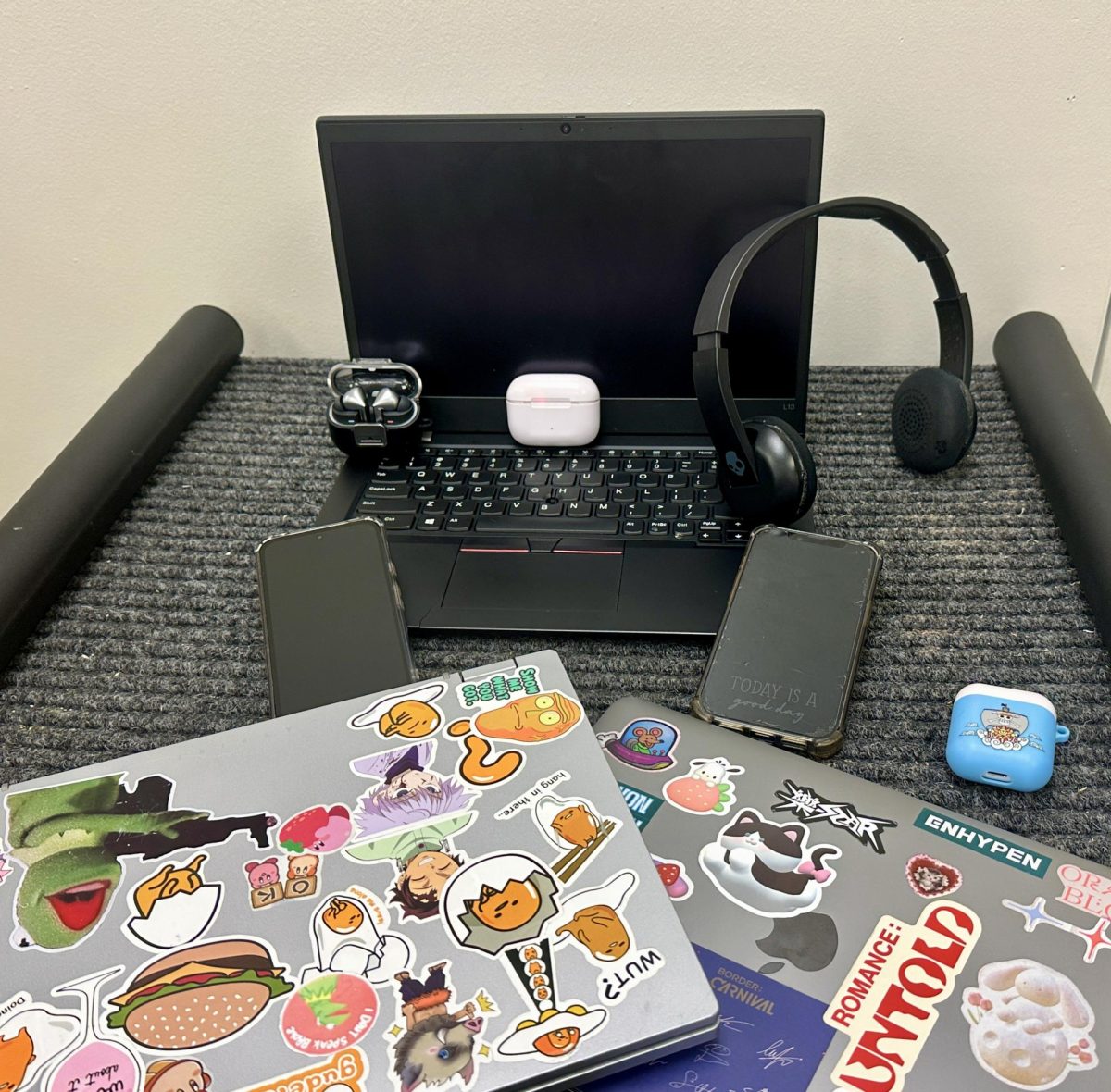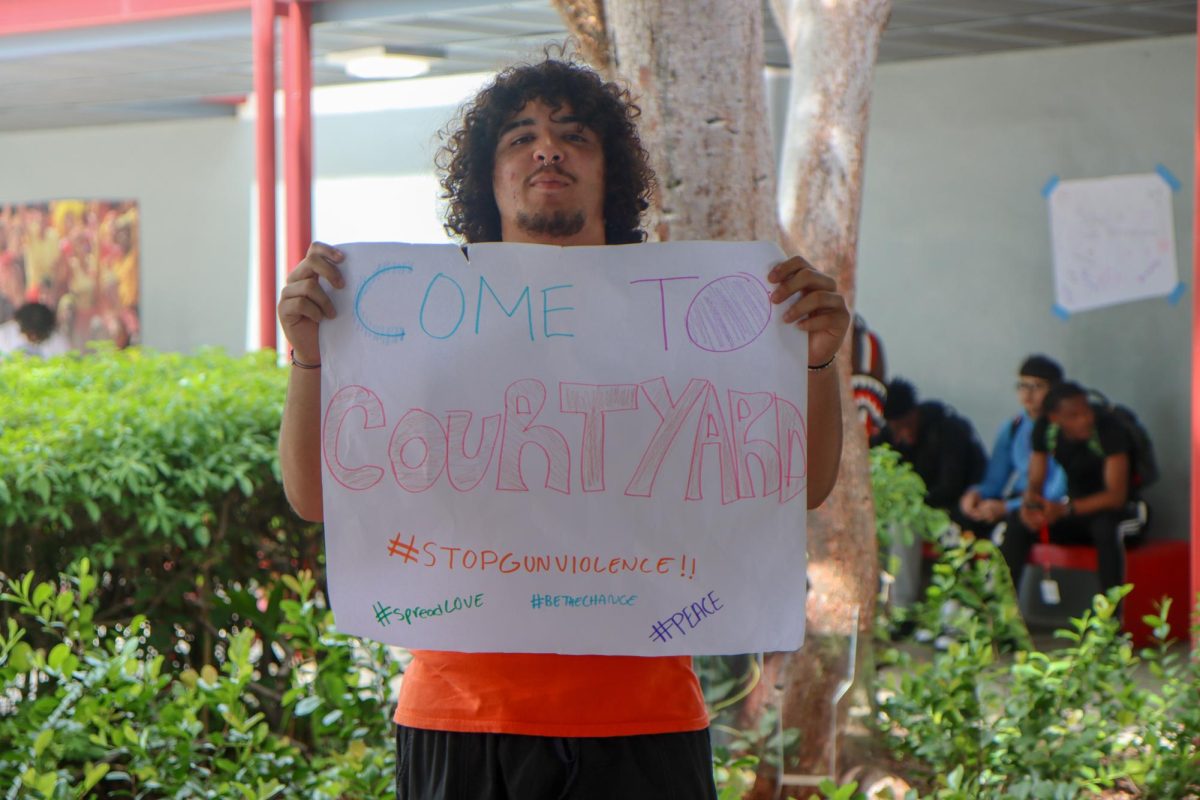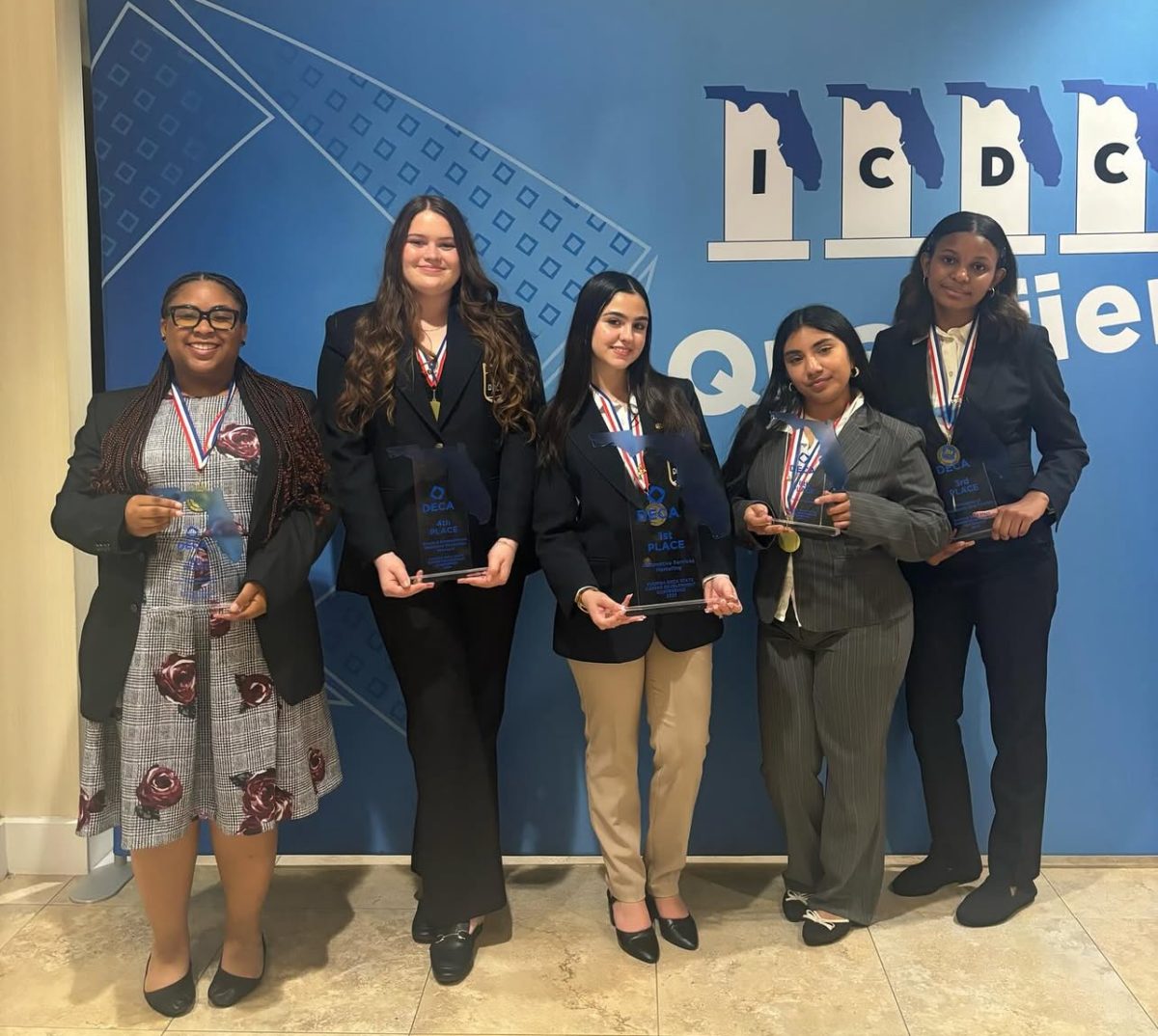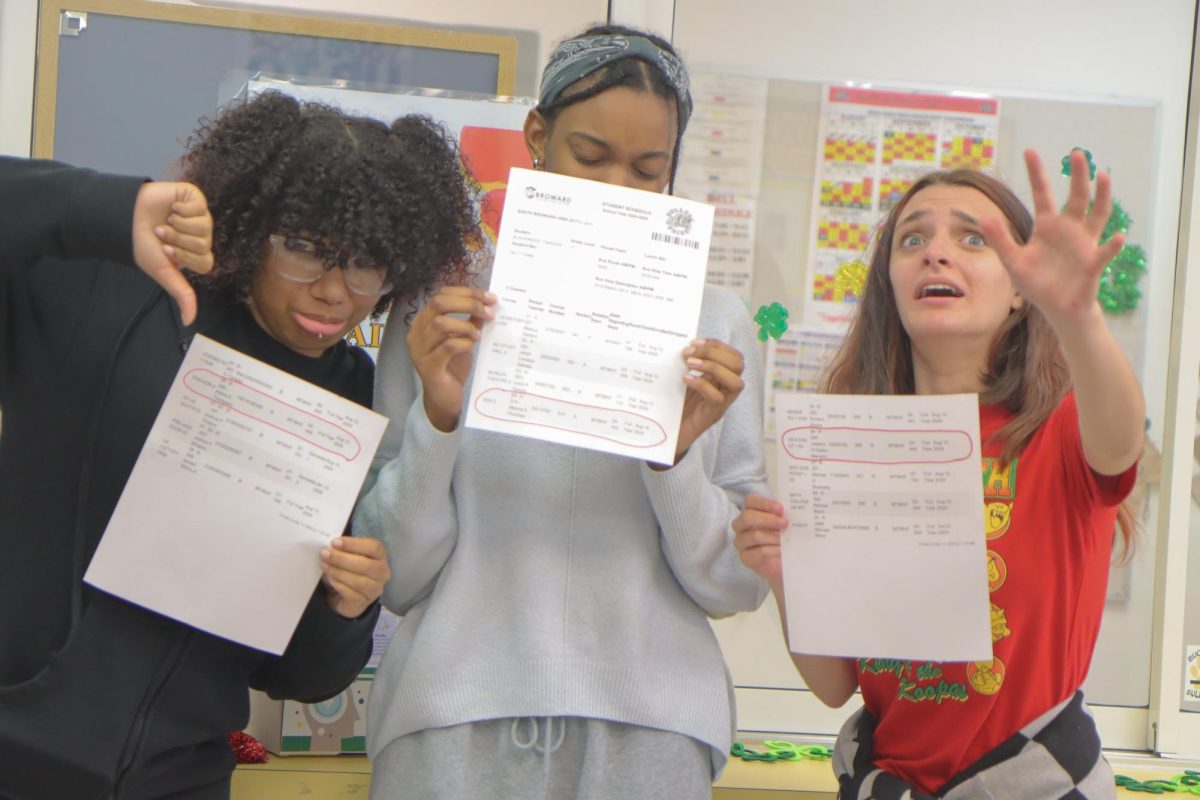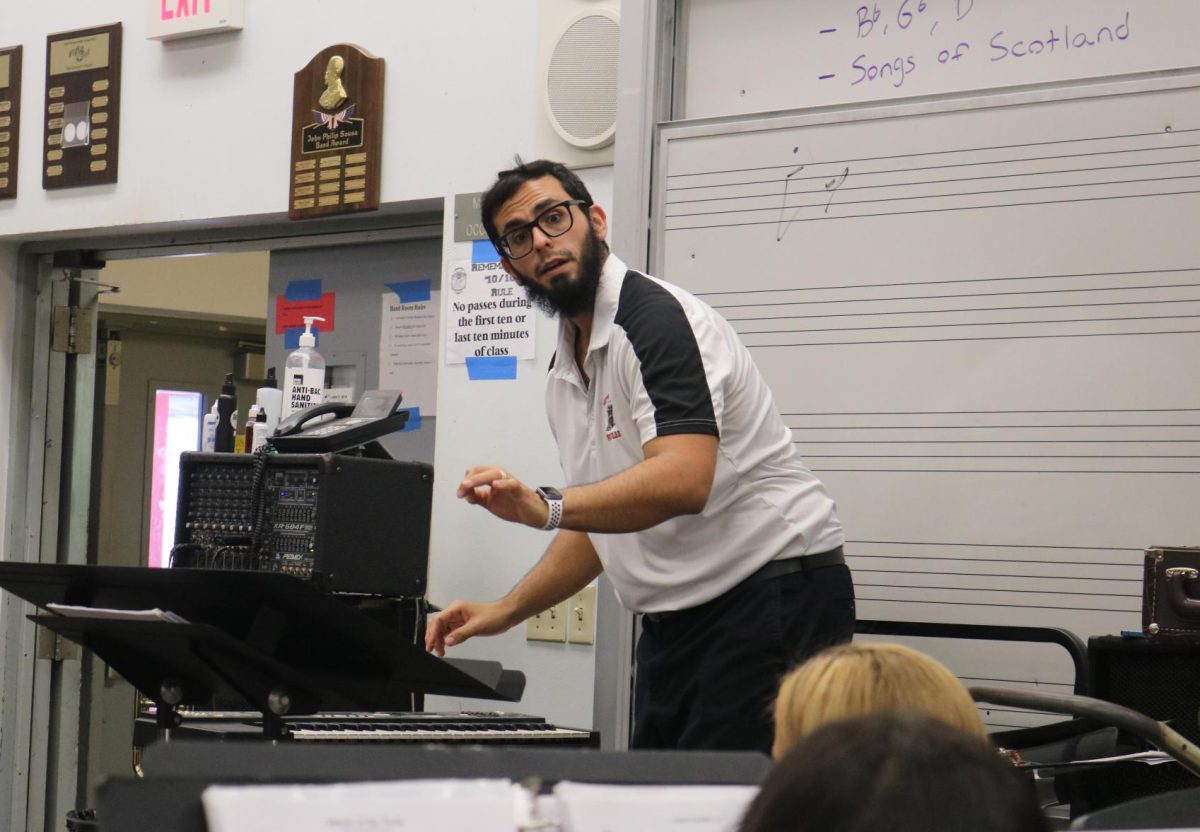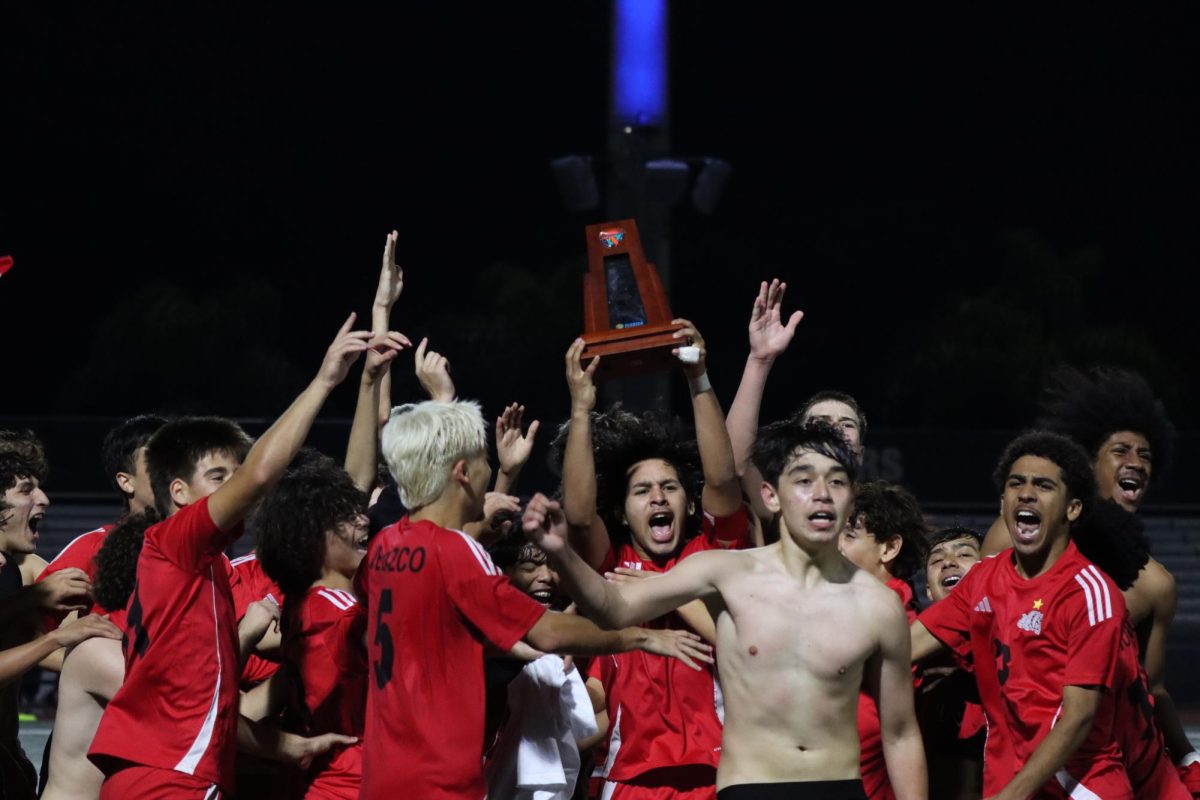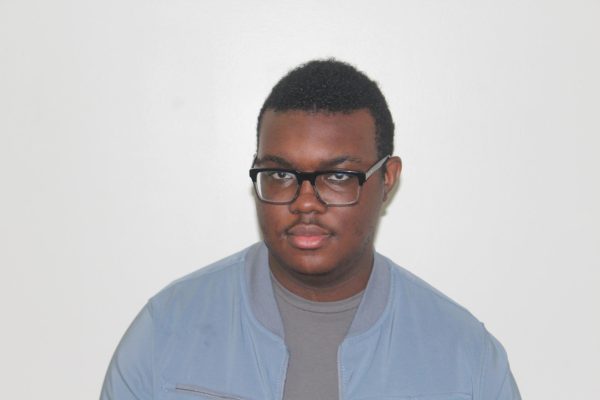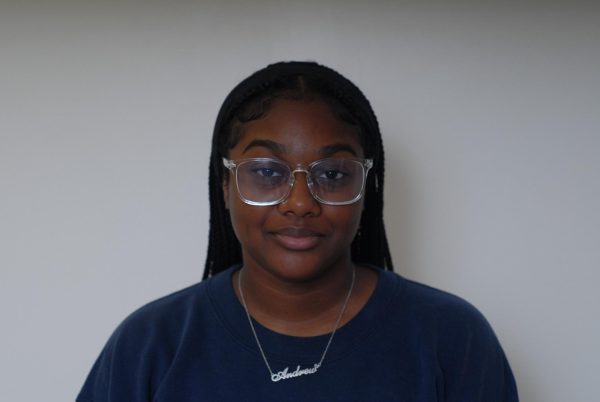During the summer of 2024, the Broward County Public Schools passed a total ban on cell phone usage during schools hours- even lunch and passing period between classes. SBHS Senior Andrew Bristol thinks that it’s a pretty good idea.
“I feel as if cell phones can be really distracting,” said Bristol. “I like to pay attention and take notes, especially this being my senior year.”
According to the new policy, a student may not use wireless communication or listening device(s) including; cell phones, laptops, smart watches, headphones, earbuds, etc during school hours unless a teacher gives permission. Bristol thinks there could be some flexibility for using phones during study halls and passing periods between classes.
“It would create a better balance between minimizing distractions and allowing technology in our learning,” said Bristol.
Students were given a grace period for the first two weeks of the school year, starting on Monday, August 12th and ending on Friday, August 23rd to adjust to the rules.
Vice chair of BCPS Debra Hixon understands that students are distracted by what’s happening on their phones.
“Cell phones are a big issue in the classroom as students are often not focused on the work going on in class,” said Hixon.
She also does not support the restrictions for the entire day, saying the general agreement from the board was that the ban would help students interact with each other instead of spending all day on their phones.
Hixon said that initially there was a lot of pushback from the students and parents, with parents upset that the policy was not discussed with the community before implementation.
“Now that we are a few weeks into the school year and the policy is in effect, I have not had much community input.. Many teachers and parents were grateful for the policy.” said Hixon.
SBHS teacher Christopher Hay strongly agrees with the policy, he says that without the phones students are more engaged compared to last year.
“Last year, the kids were just focused on their phones rather than doing the things they needed to be working on, just focusing on Facebook, Instagram, TikTok, doing some of the things that are not appropriate education,” said Hay.
He also agreed with Hixon that students should have time on their devices during transition periods, study halls, and lunch time.
“There’s a benefit of having a cell phone but there’s also a benefit of not having a cell phone.” said Hay.
He remembers when he was in high school in the 80’s, h0w they were able to communicate with letters and express themselves in writing.
According to the board, violators of the phone ban will have their phone confiscated, parents contacted, and detention. Repeated offenders will result in in-school suspension, loss of extracurriculars, and in certain cases, out-of-school suspension.
Bristol said that teachers remind the students to put away their phones at the start of the class, and if they see them again they may get it confiscated for the rest of the period. He also said the phone ban hasn’t affected him personally, and he hasn’t seen many changes in his classroom environments.
Bristol says that he likes to pay attention and take notes in his classes, especially because he’s a senior. He still doesn’t agree with every restriction placed by the ban.
“The people who want to learn and do well paid attention and took notes and asked questions.” says Bristol.
He stated that he’s usually off of his phone throughout the duration of the whole day, as he likes to spend time with his partner and his family.
While the cell phone ban in Broward County Public Schools aims to enhance student engagement and minimize distractions, ongoing discussions about balancing restrictions with the responsible use of technology continue to shape the educational landscape.


